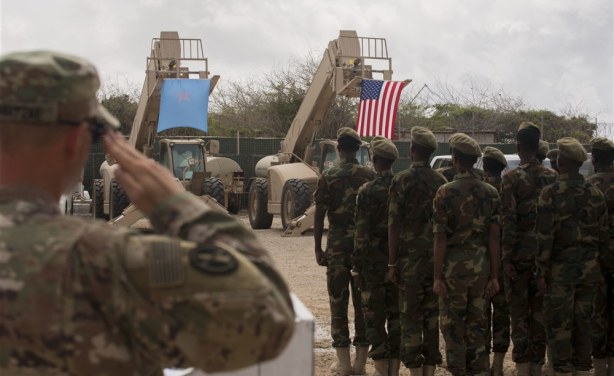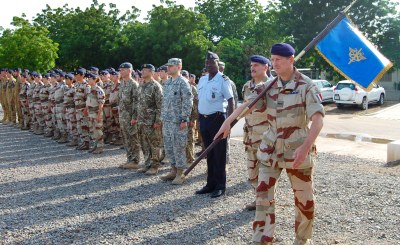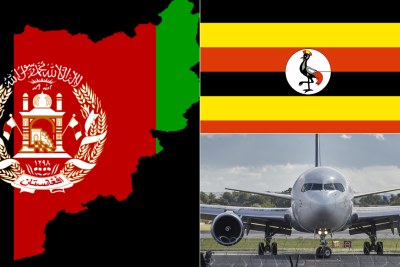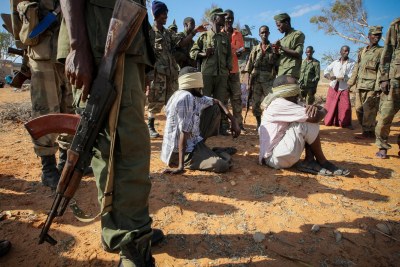-
Africa: U.S. Failure in Afghanistan: What Lessons for Africa?
DW, 20 August 2021
The ineffectiveness of military interventions has been underscored by the US failure in Afghanistan. This should lead to a rethink in Africa, writes Mimi Mefo Takambou. Read more »
-
Africa: U.S. Bases in Africa and the Future of African Unity
New Frame, 18 August 2021
The military presence of the United States in Africa is strategic and enduring. It ensures a fragmented continent, easily pliable to the West's interests and a convenient site for… Read more »
-
West Africa: For France's Sahel Mission, Echoes of Afghanistan
VOA, 22 August 2021
The chaotic aftermath of Washington's troop withdrawal from Afghanistan is being followed with a mix of trepidation and glee thousands of kilometers away -- in Africa's Sahel,… Read more »
U.S. Bases in Africa - Lessons for Continent from Afghanistan?
The ineffectiveness of military interventions has been underscored by the U.S. failure in Afghanistan. This should lead to a rethink in Africa, opines Mimi Mefo Takambou for Deutsche Welle.
"The U.S. was in Afghanistan for 20 years, spent U.S.$2 trillion, and left the country in the hands of a maniacal terrorist organization. The rationale for the continuous existence of their troops in Africa, is therefore at best contentious. From the era of the Cold War to the dawn of the global fight on terror, every intervention, whether unilateral or multilateral, has been whitewashed with the polemics of protecting the values of liberal democracy. I would therefore conclude that the United States Africa Command (AFRICOM) has outlived its usefulness, if there ever was one. Except, of course, the raison d'être for these troops in Africa, has nothing to do with ending conflicts or engaging in nation-building," Takambou writes.
New Frame reports that the military presence of the United States in Africa is strategic and enduring. It ensures a fragmented continent, easily pliable to the West's interests and a convenient site for the 'new Cold War'.
A lightly edited excerpt from Defending our Sovereignty: US Military Bases in Africa and the Future of African Unity co-published by Tricontinental: Institute for Social Research and the Socialist Movement of Ghana's Research Group says: "The presence of foreign bases arouses popular hostility to the neo-colonial arrangements which permit them more quickly and more surely than does anything else, and throughout Africa these bases are disappearing. Libya may be quoted as an example of how this policy has failed."
InFocus
-
Uganda has agreed to temporarily host 2,000 Afghan refugees at the request of the United States. Esther Anyakun, Uganda's state minister for relief, disaster preparedness and ... Read more »
-
Afghanistan is not Somalia. But it serves as a cautionary tale that billions of dollars, untold international support, and top-down strategies are not sufficient to defeat a ... Read more »
-
Nigerian President Muhammadu Buhari has warned that the United States departure from Afghanistan does not mean the so-called war on terror is winding down - instead it is shifting ... Read more »

Somali national army soldiers stand in formation during a logistics course graduation ceremony following 14 weeks training with the U.S. 10th Mountain division (file photo).





